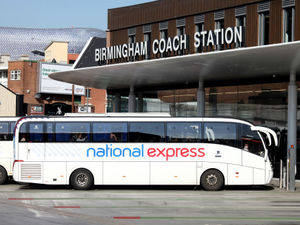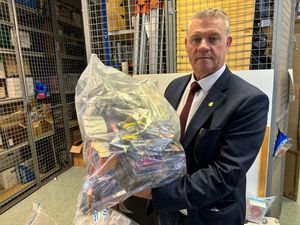School bus seat scheme axed by Staffordshire County Council
The axe has fallen on a school bus scheme that allowed families not eligible for free school transport to buy spare seats.
Affected families are continuing to battle against the ending of the Temporary Vacant Seat Scheme by Staffordshire County Council by taking their case to the Local Government Ombudsman.
Previously teenagers who did not qualify for free school transport were able to pay for a spare seat to get to sixth form, but the scheme was suspended last year due to the coronavirus pandemic.
On Wednesday county council cabinet members agreed to end the scheme in Staffordshire – but they have pledged to review and consider re-instating it once more Public Service Vehicles Accessibility Regulations (PSVAR) compliant coaches become available in the county.
The authority also plans to work with bus operators to see if existing routes can be changed to provide better travel options for affected students.
Families fighting to save the scheme have said many students in rural areas don’t have access to public transport.
Rural School Transport Action Group said: “We strongly support improving rural public bus services. Whilst Staffordshire County Council look at bridging this gap it is vital that plans are put in place to ensure rural young people don’t continue to be disadvantaged and ensure continuity of their education.
"This lifeline scheme should never have been suspended until full assessment of need had taken place. Our children have been placed at risk and literally left at the side of the road.”
Councillor Jonathan Price, cabinet member for education and SEND (special educational needs and disabilities), told Wednesday’s meeting: “Updated Government guidelines require vehicles with more than 22 seats to be compliant with disabled access if passengers are charged separately. School transport, where some passengers are entitled to free transport and other are part of the Temporary Vacant Seat Scheme, falls into this category.
“Operators do not have enough compliant vehicles to meet Government guidelines. Staffordshire adjoins 13 other local authorities and they are all facing the same issue – not enough supply to meet demand and operators will charge more than at present for compliant vehicles where these are available.
“If the Temporary Vacant Seat Scheme operates in a situation where some vehicles are compliant while others are not, we are in a situation where identical children in different parts of the county could travel for free, pay £700 in other parts of the county or some have no opportunity at all to use this scheme. We think this is unfair and unsustainable.
“There is no doubt that part of the challenge lies in the requirement that pupils are now expected to stay in full time education under the age of 18, yet Government policy has made no financial provision for those who were entitled to free school transport under the age of 16 and were receiving it when they moved to further education. I will be writing to the Department for Education to make this point and press for help in supporting our 16-19-year-olds and those predominantly in rural areas as well where transport is more difficult.”
Councillor Ian Parry said: “You can quite understand the concern of parents whose child may well have been in receipt of free transport because they were eligible. You can understand they may feel peeved when they see the vacant seat still there, there’s nobody sitting on it, they’re willing to pay the money, why can’t I get on the bus? Why do I have to get the car out, that doesn’t seem reasonable?
“The other line of thought is we’re not doing this for any kind of budget saving. We’re not doing this for any peevish ‘you’re not entitled to it so we’re taking it off you’.
“It’s simply a fact we cannot offer those seats, given that those vehicles don’t have access. But there is a fair and equal access issue around this – some young people in parts of the county where there is no bus coming to the end of their road have got to find their own way. Whilst there’s 300 families affected by this, there will be many families who have to face the inconvenience and the logistical planning in getting their children to school.
“We’ve got to bear in mind this is a family responsibility, it is not the responsibility of this council. We’re not here to provide free transport simply because you live in a rural area that’s inaccessible by public transport.”
Council leader Alan White said: “As a representative of a large rural division I wouldn’t say I am pleased to see these recommendations because this is not a peevish thing – we’re not taking stuff away just because we want to.
“This is a difficult thing to do and it affects people in my division. This is a tough decision because it affects people’s lives. Having met a couple of families affected by this I understand the angst and anguish caused by this decision.”





